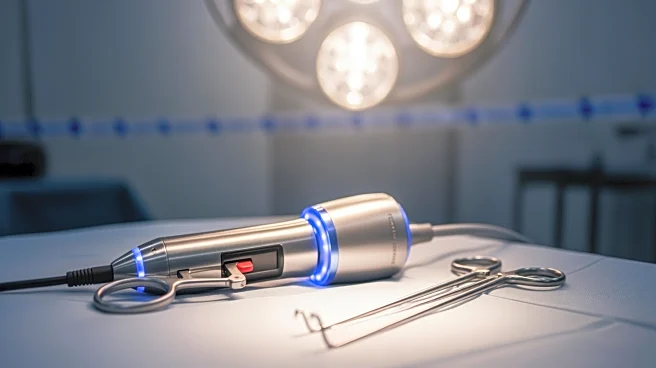What's Happening?
Whole-body MRIs are becoming increasingly popular as individuals seek comprehensive health assessments. These scans, offered by companies like Prenuvo, are designed to detect a wide range of conditions without radiation exposure. The process involves a detailed health history, fasting, and a one-hour scan, with results available within days. Despite their rising popularity, some medical professionals question the necessity of these scans for asymptomatic individuals, citing potential risks such as false positives and unnecessary follow-up tests. Prenuvo has faced legal challenges, but continues to expand its services across the U.S.
Why It's Important?
The rise of whole-body MRIs reflects a growing interest in preventive health measures and personalized medicine. These scans offer individuals a proactive approach to health management, potentially identifying issues before they become serious. However, the high cost and questions about their efficacy highlight the need for careful consideration and consultation with healthcare providers. The trend also underscores the influence of technology in healthcare, as advancements make comprehensive diagnostics more accessible to the public. This development could lead to shifts in how preventive care is approached and valued in the healthcare system.
What's Next?
As whole-body MRIs continue to gain traction, it is likely that more companies will enter the market, potentially driving down costs and increasing accessibility. Ongoing debates about their necessity and effectiveness may lead to further research and guidelines from medical organizations. Patients and healthcare providers will need to weigh the benefits and risks of these scans, considering individual health histories and potential outcomes. The legal and ethical implications of widespread use of such technology will also need to be addressed, ensuring patient safety and informed decision-making.









